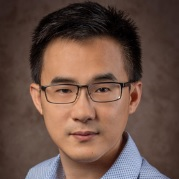Advances in Directed Energy Deposition Additive Manufacturing
A special issue of Journal of Manufacturing and Materials Processing (ISSN 2504-4494).
Deadline for manuscript submissions: 30 June 2024 | Viewed by 187
Special Issue Editors
Interests: additive manufacturing; material science; sustainable manufacturing
Interests: additive manufacturing; 4D printing; acoustic field-assisted AM
Special Issues, Collections and Topics in MDPI journals
Interests: smart manufacturing; additive manufacturing; engineering design
Special Issues, Collections and Topics in MDPI journals
Special Issue Information
Dear Colleagues,
Directed energy deposition (DED) additive manufacturing (AM) has been recognized as an efficient and sustainable technology in advanced manufacturing. Over the past few years, considerable discussion has been made to promote DED AM for better performance in manufacturing. The discussions focus on basic theoretical research, process optimization and control, technology innovation and industrial applications. Although DED technology is growing rapidly worldwide, many scientific and technical challenges need attention to make this technology platform more versatile. The challenges include complex phase transformations and microstructural changes, non-uniform residual stresses and distortions, porosity, lack of fusion and cracking, etc.
In this Special Issue of JMMP, we are looking for recent advances in DED technology, including material development, process design and optimization, physical characteristics, defects, challenges and applications. We are interested in contributions that focus on topics such as:
- Laser–material interaction mechanisms;
- Melt pool thermal behavior modeling and simulation;
- Process optimization, in situ process monitoring and feedback control;
- Mechanical characteristics and behaviors;
- Defect formation mechanisms and characterization;
- DED-based hybrid additive manufacturing.
Dr. Zhichao Liu
Dr. Yingbin Hu
Dr. Dazhong Wu
Guest Editors
Manuscript Submission Information
Manuscripts should be submitted online at www.mdpi.com by registering and logging in to this website. Once you are registered, click here to go to the submission form. Manuscripts can be submitted until the deadline. All submissions that pass pre-check are peer-reviewed. Accepted papers will be published continuously in the journal (as soon as accepted) and will be listed together on the special issue website. Research articles, review articles as well as short communications are invited. For planned papers, a title and short abstract (about 100 words) can be sent to the Editorial Office for announcement on this website.
Submitted manuscripts should not have been published previously, nor be under consideration for publication elsewhere (except conference proceedings papers). All manuscripts are thoroughly refereed through a single-blind peer-review process. A guide for authors and other relevant information for submission of manuscripts is available on the Instructions for Authors page. Journal of Manufacturing and Materials Processing is an international peer-reviewed open access semimonthly journal published by MDPI.
Please visit the Instructions for Authors page before submitting a manuscript. The Article Processing Charge (APC) for publication in this open access journal is 1800 CHF (Swiss Francs). Submitted papers should be well formatted and use good English. Authors may use MDPI's English editing service prior to publication or during author revisions.
Keywords
- directed energy deposition
- process optimization
- characterization
- hybrid manufacturing
- interaction mechanisms







